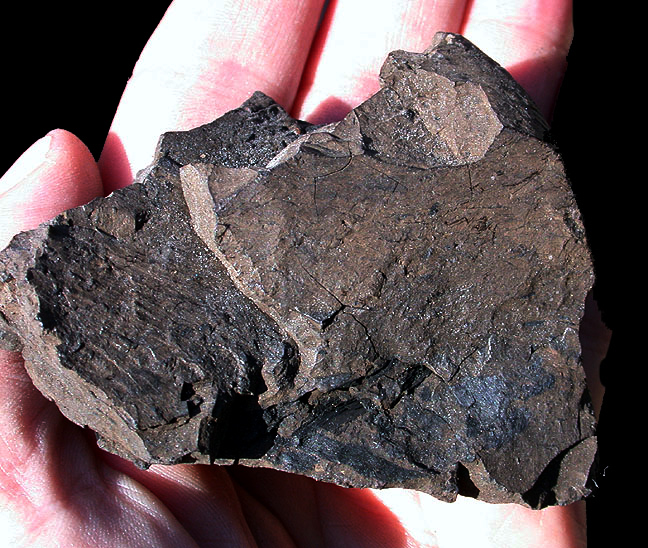
|
This is a chunk of high-grade, Montan Wax-bearing lignite from the Middle Eocene Ione Formation, western foothills of the Sierra Nevada, California. It came from the walls of California's only active coal mine, where lignites bearing the rare Montan Wax have been mined for several decades now. Only two places in the world produce commercially mineable deposits of Montan Wax--the Ione Basin, California, and Amsdorf, Germany. Montan Wax occurs quite rarely in the geologic record when the waxy substance which once protected the original plant leaves from extremes of climate did not deteriorate, but instead enriched the coal. Commercial applications for Montan Wax include polish, carbon paper, road construction, building, rubber, lubricating greases, fruit coating, water proofing and leather finishing. Lignite from the Middle Eocene Ione Formation of the Ione Basin is a low-grade coal which has not been subjected to great forces of heat and pressure through geologic time--hence, the waxy substance of the original vegetal constituents has not been obliterated, or altered. The lignites likely accumulated in a marsh-like setting at the margins of "alluvial islands"along the Eocene floodplains. Relatively stable conditions through many thousands of years allowed the slow, steady build-up of relatively unaltered decaying plants, primarily angiosperms--palms and other flowering plants--although geochemical analysis of the lignite demonstrates that at least some of the contributing plant material must have been derived from gymnosperms--most likely by the decay of great quantities of swamp cypress. Please note: All fossil localities in the Ione Formation of Amador County, California, presently occur on private property; explicit permission from the land owners must be secured before collecting fossils there. |